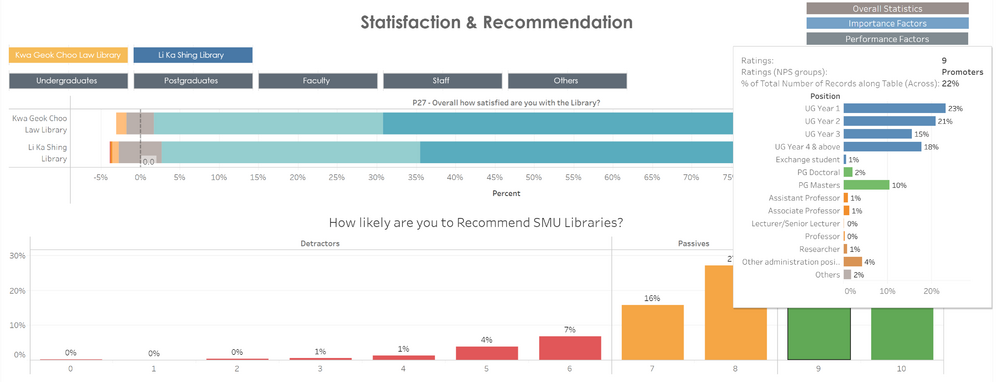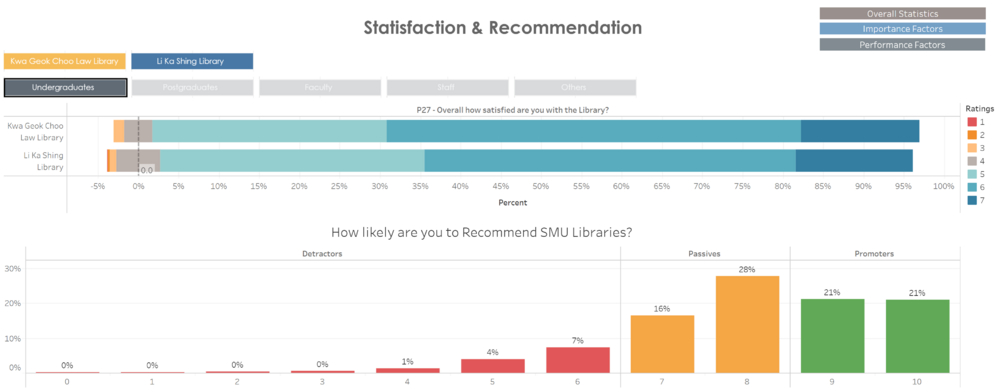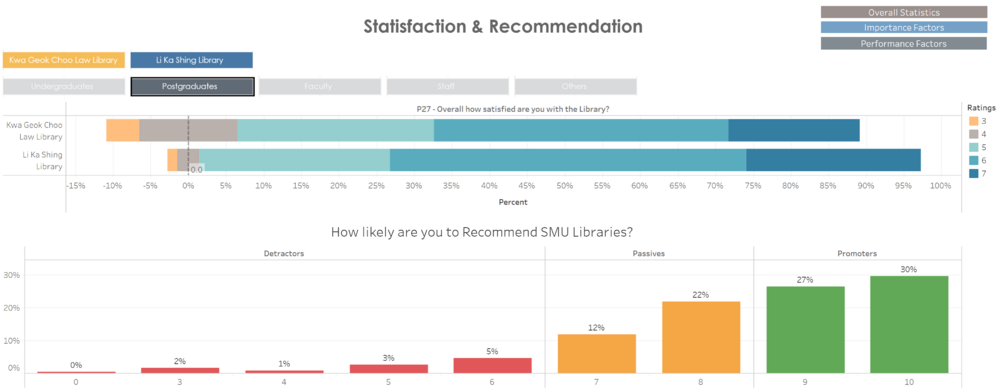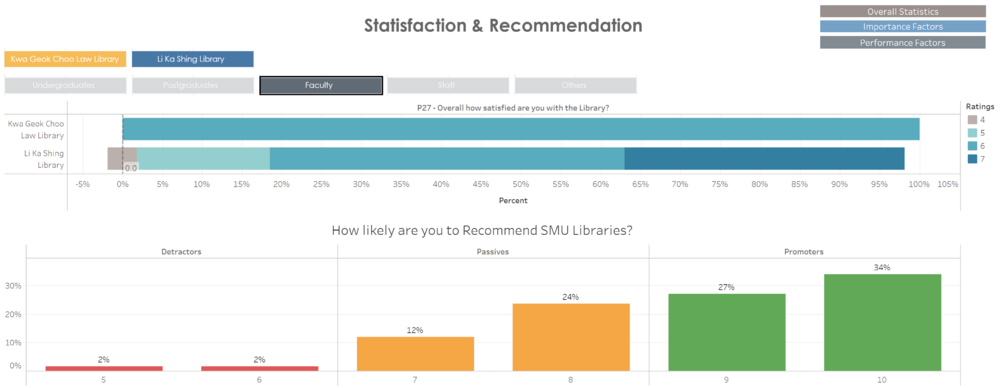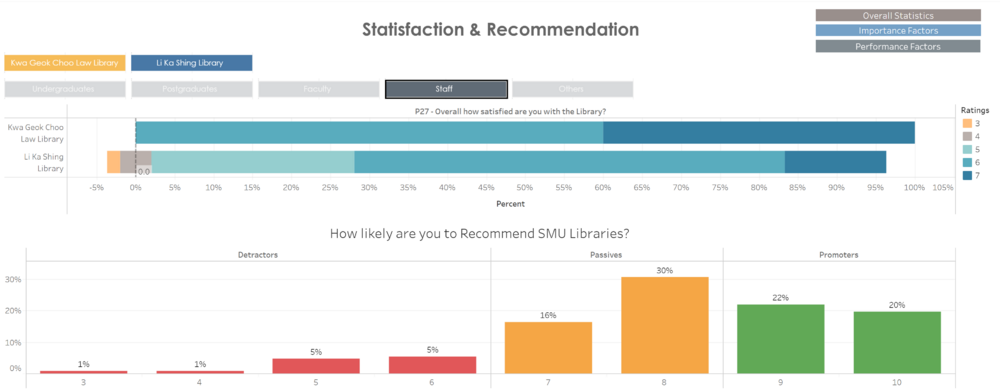IS428 AY2019-20T2 Assign LIM PAO LING RACHEL Recommendations
SMU Library Dashboards
Under the recommendation dashboard, the uncategorised survey question: “Overall how satisfied are you the library?” and the likelihood of recommendation question was categorised together to visualise the degree of satisfaction of the respondents with SMU libraries and how likely they are to advocate the use of SMU libraries.
The recommendation ratings were represented using the Net Promoter Score concept which consists of 3 advocacy group types: Detractors, Passives and Promoters. In addition to the recommendation chart, a tool tip was used to provide an inside view of who are the various respondent groups within the 3 advocacy group types.
| Observations |
|---|
|
Recommendations - Undergraduates From the selected Undergraduate filter, it is observed that KGC had a more satisfactory rating compared the LKS library by a slight margin. There were no 1 rating for KGC while LKS ratings include rating 1. However, this could be a result of a smaller group of respondents visiting KGC library as compared to LKS library. In terms of Advocacy, it is observed that at least 42% of the undergraduates are likely to promote the usage of SMU libraries. While the 44% of undergraduates under the passive group can substantiate the portion of undergraduates who are at least satisfied with SMU libraries.
|
|
Recommendations - Postgraduates For the selected Postgraduate filter, it is observed that LKS library had a greater satisfaction rating compared to KGC library; the overall percentage ratio per rating number was generally higher than KGC library. In terms of advocacy of SMU libraries, it is observed that at least 57% of the postgraduates would advocate the use of SMU libraries while 34% are at least satisfied with SMU libraries. |
|
Recommendations - Faculty For the selected Faculty filter, it is observed that there was a greater overall satisfaction with both libraries from faculty respondents as the ratings generally ranged from rating 4 to rating 7, there were no negative ratings. Between the two libraries, LKS library still fared better with the overall satisfaction of the library usage compared to KGC library as the rating rage was higher. Looking into the recommendation chart, the ratings were at least from the halfway point, 5/10, which substantiate the satisfactory rate of library usage by the faculty respondents. At least, 61% of them would actively promote the use of SMU libraries. While 36% are just satisfied with SMU libraries. |
|
Recommendations - Staff For the selected Staff filter, it is observed that using the KGC library is more satisfactory as compared to using LKS library, this is evident from the range of rating being in the 6 or 7 range and the rating range of 3 to 7 for the respective libraries. From the recommendation chart, at least 42% of the staff are likely to be active promoter of the SMU libraries, which 46% are contented with SMU library services and resources. |
Insights Summary
Satisfaction - Undergraduates
Based on the overall satisfaction ratings, it is observed that undergraduates are generally more satisfied the use of LKS library rather than KGC library.
Satisfaction - Postgraduates | Faculty | Staff
On the other hand, based on the overall satisfaction ratings, it is observed that these groups of respondents generally are more satisfied with the use of KGC library rather than LKS library.
Promoters – Postgraduates | Faculty
Observing the Net Promoter Score bar chart, it is observed that postgraduates and faculty members are more likely to promote the usage of SMU libraries, undergraduates and staff respondents generally fall into the passives category, which implies that such groups are satisfied with SMU libraries but might not be as impressed enough to advocate the use of SMU libraries.
